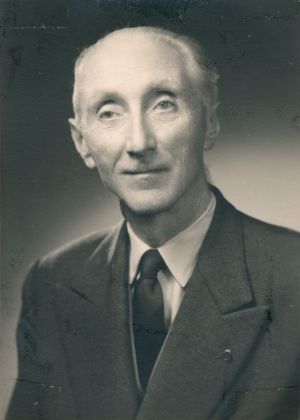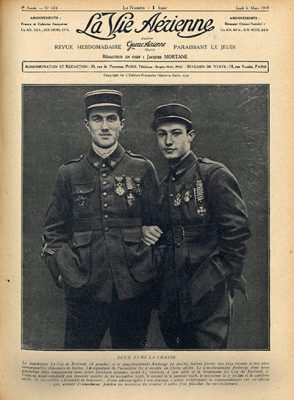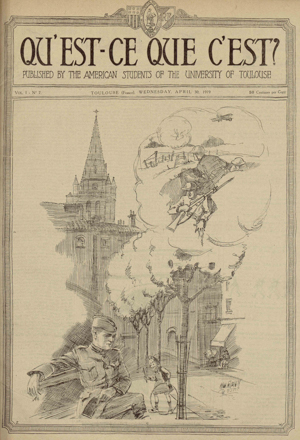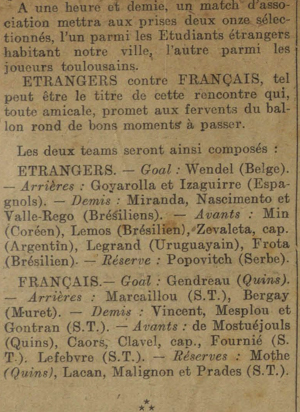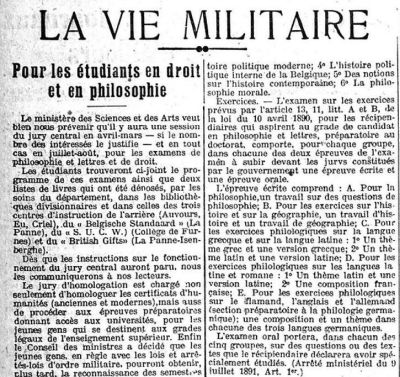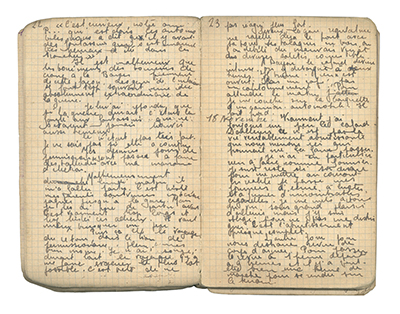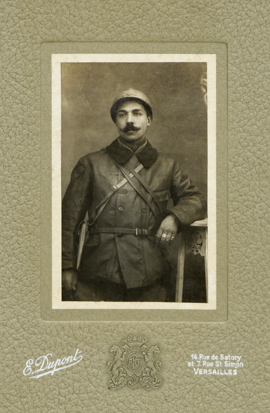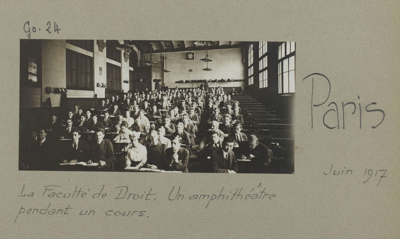Paul Demeur’s “War Diary” is not a war diary. In 1964, Paul Demeur, a lawyer at the Court of Cassation, was asked to join the editorial board of the Journal des Tribunaux, Belgium’s leading legal periodical. At the time, Paul Demeur was a leading figure in Belgian legal circles in the second half of the 20th century, both as a lawyer at the Court of Cassation and as a professor at the Catholic University of Louvain. Fifty years after the outbreak of war, the editorial board felt it “appropriate to evoke […] the memory of those jurists, magistrates and lawyers, both practicing and aspiring, who did not, at the time, remain insensitive to the call of the country, and who’s simple and pure examples still nourish ourpour lire la suite…
Category: Journeys of students
Charles Le Coq de Kerland father and son : two generations of lawyers, from the amphitheater to the open sky
The declaration of war on August 1, 1914 triggered the general mobilization. The number of men between the ages of 20 and 38 called upon to join the army stands at more than 3,800,000. However, the extent of the French contribution to the conflict was not limited to the gluttony of the military institution. Indeed, the entire French society was mobilized into the Sacred Union. For more than four years, entire families, combatants and civilians, saw their activities guided by the hope of victory. This was in response to the requests of the Government, which directed all sectors of social life towards the conflict and set up war propaganda, but also a call of duty for those who had seen their son, father, husband orpour lire la suite…
Women students and student associations in Bordeaux
French universities remained hardly accessible to women. The faculty of Bordeaux, created in 1441, then (re)created in 1870 after its abolition in 1793, illustrated this lack of diversity. The study of the University of Bordeaux in the Great War is a good example to portray the entrance of women – these pioneers – in French higher education, and their commitments as active members of student associations. In France, Emma Chenu and Julie-Victoire Daubié were the first two female students. Respectively enrolled for the former in science and mathematics in 1867, for the latter in Humanities in 1871 (first Frenchwoman to be granted a bachelor’s degree at the faculty of Lyon in 1861). In law studies, it was not until 1884 that two women (one Russianpour lire la suite…
American students at the Toulouse Faculty of Law
Shoulder Arms, Charlie Chaplin’s film, released in the United States on October 20, 1918, features Charlot trying to train in an army camp. When evening comes, he falls asleep and wakes up in a trench in France sharing the expectation and the idleness of his companions in misfortune. He volunteers for an espionage mission. Returning a hero, having saved a young French woman and captured Kaiser Wilhelm II, Marshal Hindenburg and the Kronprinz. Chaplin was no stranger to the poilus when his film was released in France on April 20, 1919 under the name Charlot Soldat. In 1915 at the Bois de la Vache in Somme, Swiss Frédéric Louis Sauser, alias Blaise Cendrars, while he was serving in the French army as a foreign volunteer,pour lire la suite…
Welcoming foreign students at the Toulouse Faculty of Law
To talk about this theme shows how the academic environment has changed in very few generations of students. How many generations was it by the way ? For the Toulouse Faculty of Law, the inflection point may be associated with a change in status, in power seat, in symbol. In 1971, the Toulouse Faculty of Law and Economics became the University of Social Sciences ; the last dean, Professor Marty, was the first president of the new entity ; the place of power shifted from the “old college” of regulars to the spaces perceived as sanitized by the “new university”, quickly decorated with the name inherited from the old military power that had inhabited it since the Revolution : the Arsenal. In the new academy, foreign students were nopour lire la suite…
Foreign law students in France in the Great War
Foreigners’ law studies in France The vast majority (nearly 80 % in 1902) of foreign students enrolled in 1913 at the Paris Faculty of Law were taking bachelor’s and/or doctorate level courses, after having presented a secondary school diploma recognized as equivalent to the French baccalauréat ; a small number (18 %) were simple registrants who sought only a certificate of attendance that could be used in their country, often jurists in search of professional development. Some 60 Egyptians who had begun their studies at the French School of Law in Cairo and who came to take their examinations in Paris are added to the list because of their numerical importance. In the last years of the 19th century, in hopes of preventing foreign graduates from setting uppour lire la suite…
The right of Belgian student soldiers
The German invasion, in August 1914, pushed part of the student population into the army. They were forced to interrupt their higher education. The necessities of war prevented the resumption of structured scholarly activity in the first months after the German invasion. It was only a year later, in September 1915, that there was a desire among the army and conscripts for a resumption of studies. This desire was expressed by the army medical auxiliaries, who had not had the opportunity to take their last medical doctorate finals and who wanted to see an examination panel organized so that they could complete their education and obtain their degree. The War Department vetoed it : the organization of an examination panel for students of the 3rd doctoratepour lire la suite…
Students of the Lyon Faculty of Law in the First World War
On the eve of the first world conflict, with its 15 tenured professors and 585 students, the young Lyon State faculty held an intermediate rank in the cohort of French faculties of law. Its creation, it is true, was still recent, since it had taken the law of 1875 on the freedom of higher education and the prospect of seeing the old capital of the Gauls become the seat of a Catholic law school, animated by monarchist and very conservative aldermen of Lyon, for the creation of the state faculty to finally become an apparent necessity in the eyes of republican political leaders. Hastily improvised in the fall of 1875, the young institution of higher education quickly found its audience. Its recruitment pool was quitepour lire la suite…
Portraits of Toulouse students in the war
In Toulouse, the academic year of the first year of war began on November 9, 1914. It unfolded “normally”, Dean Maurice Hauriou reported to his assembled colleagues. And yet the numbers speak for themselves. After 1,032 enrollments in 1913, only 295 in 1914. By 1916, only 175 enrollments would be registered and, although the increase somewhat resumed later, it was not until 1930 that the threshold of a thousand new students would again be crossed. The Toulouse Faculty of Law of was hit hard by the outbreak of hostilities. While many had already joined their regiment or would gradually leave, those in the rear were expected to mobilize in their own way as well. For the deferred and exempted conscripts, though sometimes very temporarily, aspour lire la suite…
French law students in the Great War
In the 19th century, law students at the Faculty of Paris belonged to the middle or upper classes and, unsurprisingly, a fifth had a father practicing a legal profession (judge, lawyer, notary, etc.) ; 40 % were sons of landowners or annuitants, 13 % sons of traders, merchants or manufacturers, 11 % sons of civil servants, 4 % sons of doctors or pharmacists, and 3.5 % sons of teachers. More than their fellow students enrolled in medicine, literature or science, these students are from Paris and the Seine department (22 %), and not from a provincial city, which is an indication of material ease. Finally, while at the end of the century, 80 % of medical students lived on the left bank and 19.4 % on the right bank of the Seine, one thirdpour lire la suite…

